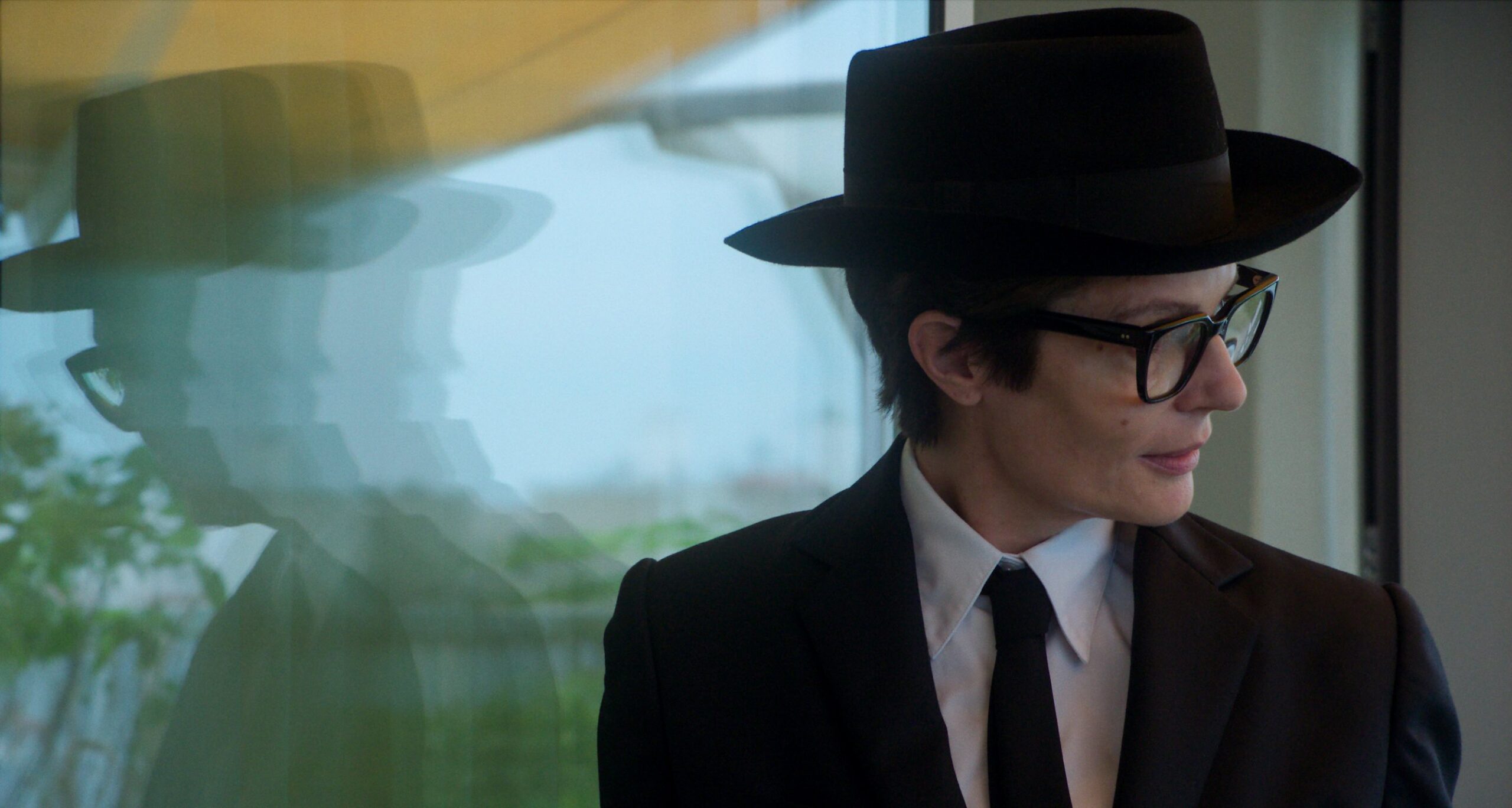Chiara Mastroianni really does resemble her dad. Near the beginning of Christophe Honoré’s “Marcello Mio,” she has a dream in which she looks in the mirror and sees her famous father, Marcello Mastroianni, staring back. Telling her equally famous mother, Catherine Deneuve, about the dream, Chiara remarks that she has inherited her father’s face. “You have his expressions,” Deneuve counters, but adds, “You look like me, too.” Which is true.
Honoré’s film is a meta comedy about Chiara’s life as acting royalty, a status that for her is not always a plus. When she’s shown working with the director Nicole Garcia (who, like most of the principals in “Marcello Mio,” plays herself), Garcia tells her to be “more Mastroianni than Deneuve.” “Personally I was aiming for Chiara,” Chiara responds bitterly.
Over the course of the film, which Honoré wrote and directed, Chiara strikes up a friendship with a lovesick British soldier (Hugh Skinner) who initially doesn’t know who she is, which is liberating. She takes in a good dog she spots in Paris. And she starts dressing up as Marcello—persuasively enough for Marcello’s former co-star Stefania Sandrelli to identify her as the most accurate impersonator in a lineup on TV, but not so convincingly that the police will let her get away with splashing around in the Trevi Fountain in imitation of her father in “La Dolce Vita.”
“Marcello Mio” is innocuous enough, but Honoré lacks the briskness and wit that might have turned it into a truly sharp satire—something on the order of “Being Marcello Mastroianni.” A skit-like premise is allowed to ramble to the two-hour mark. Chiara comes across as secure in who she is. But it’s not clear that Honoré ever decided what this movie should be.

Sandrelli also appears late in Paolo Sorrentino’s “Parthenope,” which is best thought of as an extremely long fashion ad that thinks it’s a Greek myth. Born in 1950 in the waters off Naples, the title character shares a name with one of the Sirens. From the time she is 18 (when she is played by Celeste Dalla Porta, who has the role through most of Parthenope’s life until Sandrelli takes over in the present-day coda), she drives men (and some women) to distraction. Those struck dumbfounded by her beauty appear to include Sorrentino, who wrote the screenplay, which fails to give Parthenope a coherent odyssey of her own.
Over two hours and change, the movie presents Dalla Porta in a succession of stunning outfits (Anthony Vaccarello of Saint Laurent is credited as “costume artistic director”) that have been photographed in correspondingly stunning locations (principally in Southern Italy). The basic suspense concerns whom Parthenope might sleep with, or whether she might ever remove those outfits. Should anyone deign to accuse Sorrentino of prurient interest, note that Parthenope is portrayed as gorgeous and brilliant. She gets top marks as an anthropology student and aspires to an academic career after flirting with acting.
The various would-be colorful characters who enter her life include Naples’s most renowned acting teacher, Flora Malva (Isabella Ferrari), who always keeps her face veiled because of botched plastic surgery, and with whom Parthenope has a steamy interlude; an imperious star with the improbable name Greta Cool (Luisa Ranieri); and, for some reason, a real-life figure, the author John Cheever (Gary Oldman), whose stories Parthenope loves. But he won’t let her walk with him one evening, because, he says, he doesn’t want to steal a minute of her youth. The movie’s Cheever says things like, “Beauty is like war. It opens doors.” If the real Cheever actually wrote that, then consider the criticism withdrawn. But it sure sounds like a Sorrentino-ism.

Greek mythology comes up briefly in “Elementary,” a new documentary from Claire Simon (“Our Body“) that’s showing in the festival’s special screenings program. Quite simply, the film observes dedicated teachers teaching and interested students learning at Makarenko Elementary School, a public school just outside of Paris. Kids are quizzed on multiplication and division, learn to circle the verbs in a piece of writing, have Jules Verne read to them, and go on a field trip along the Seine. They are taught to make art and music, and in a showstopper toward the end, they practice their English by singing Rihanna’s “Diamonds.” The film is straightforward—it’s not nearly as fraught a prospect as “Our Body,” which filmed women undergoing medical treatment—and while one can wonder about how invisible the camera was to both the educators and the educated, “Elementary” is almost impossible not to be charmed by.












